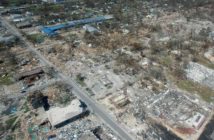It’s no secret that tourism brings incredible benefits for a country’s economy, especially for smaller, more remote areas. But tourism is often more harmful if left under the control of foreigners and not locals. That is why many third world countries are taking steps toward a sustainable future.
But first, what benefits does tourism have on local economies?
Many communities rely on tourism for their livelihood. In fact, it fuels their economy. Employment, income, and foreign exchange are the biggest economic advantages to tourism. That’s great and all, but it doesn’t paint the full picture.
Tourism developments create imbalances and damages to the environment. Socio-cultural, and architectural impacts are in favor of foreigners and not at the benefit of locals.
Sustainable tourism:
For tourism to be sustainable, it must be conscientious in environmental, economic, and socio-cultural ways.
Philippines:
The country is endowed with rich natural resources and glorious scenery. Islands in the Philippines are sustained through the income from foreign tourists. Small, remote islands do not have any opportunities for economic gain given their isolation.
Boracay island in the Philippines is an example of a place that garners huge economic gains, but due to uncontrolled levels of tourism, it has caused the island to be stripped of natural resources and led to imbalances in the region at large.
Bermuda:
Once one of the most coveted tourist destinations, the expansion of airports and cruise ships led to tourism increases in the 1980s. In 1992, it suddenly saw a drop in tourism, leading to the closure of major resorts. Local jobs were lost, and the economy suffered as a result.
Intensive development, holistic tours, and looking at ways to increase average stay led to a recovery in Bermuda’s tourism industry. This is an example of long term, sustainable tourism development.
Land use:
Uncontrolled tourism leads to overcrowding, overdevelopment, and pollution. Islands that rely on tourism are called TouRAB – a term derived from an acronym MIRAB (coined in the 1980s) that refers to economies that depend on migration, remittances, aid, and bureaucracy.
Tourism should never be the solution to a country’s economic crisis. Holistic development depends upon medical assistance, education, public safety, and other important sectors.
Climate change:
The greenhouse effect refers to the rise of sea levels, leading to depletion in land. Tourist islands are dependent on natural beaches, meaning that climate change has adverse effects on beaches and infrastructure. Tourism causes widespread pollution, affecting the environment, and endangering natural resources.
Tourism often enables negative environmental practices. Beaches, waterways, and forests often suffer from disruptive practices and overcrowding. Resources in visited areas must be respected and preserved through local monitoring provisions, as well as environmental laws.
Socio-cultural sustainability:
When areas begin to experience influx of tourists, social and cultural impacts of those tourists. Locals see increased congestion and overcrowding in local areas. The introduction to new languages, values, and even migrant workers employed in the tourist industry.
This creates diversions in local cultures and practices. Preserving local traditions is exceedingly important to the quality of life for local residents. Involving the community in tourism industries will allow them to integrate positively into the process rather than feel excluded from it.
Foreign investors own many hotels, so it is unlikely to contribute to the local economy, as the money will likely be carried overseas. This is not sustainable.
Sustainable tourism is key to a globalized world – one that benefits all. The next time you travel abroad, make sure to ask yourself crucial questions: which hotel is locally owned? Which one is more eco-friendly? Also look into the impacts that a particular activity may have on the host community.




